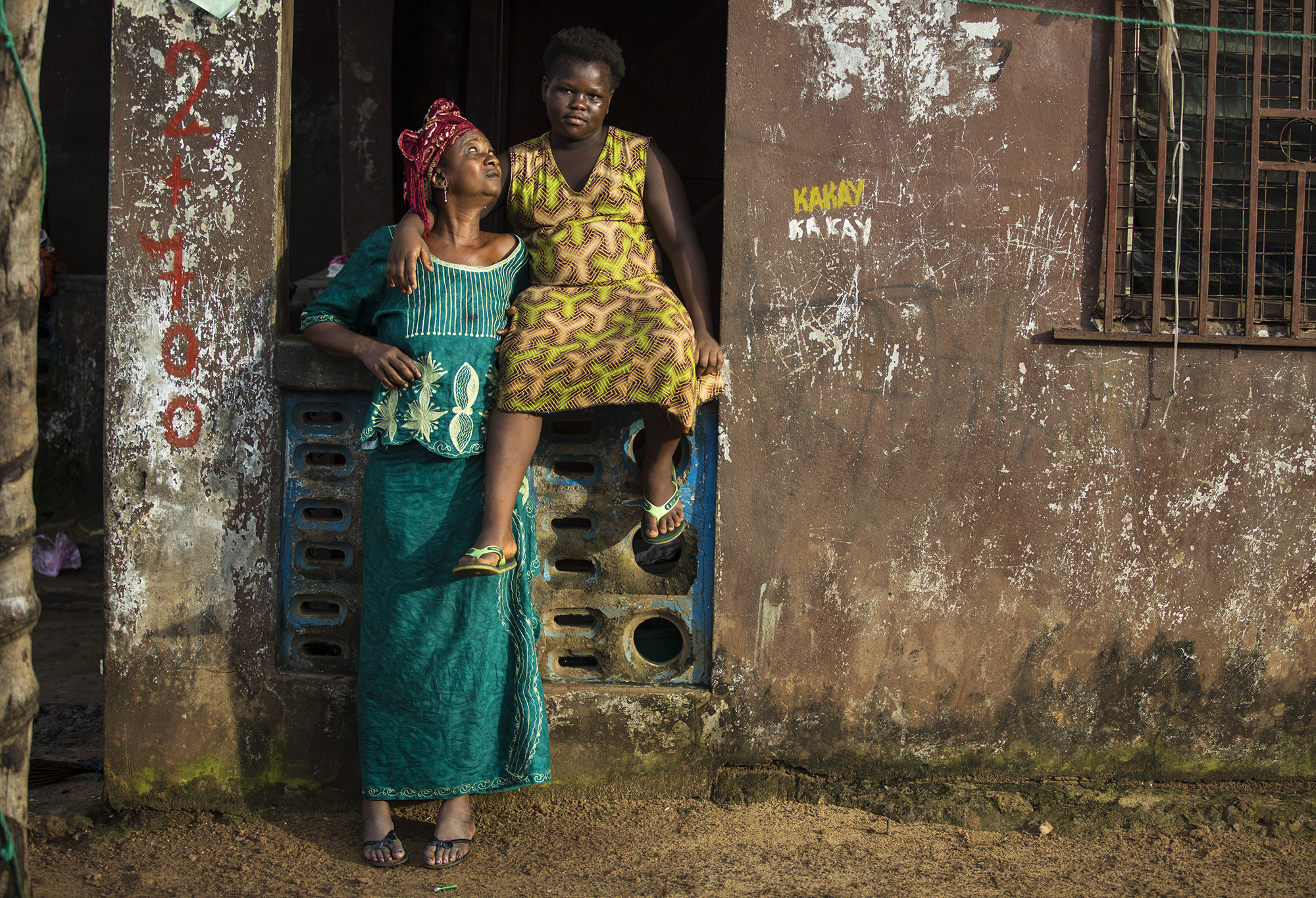
Isata Mansaray, Ebola survivor and orphan, with her grandmother Fatmata Mansaray, Sierra Leone. “When I was released from the treatment centre I was told that my parents had gone to America, but later my uncle admitted to me that they had died. When they were alive, they were able to give me everything I needed — I was able to get my hair done. But I don’t feel too sad now because my grandmother is looking after me. A social worker comes and plays with me and asks how I’m doing. I want to be a bank manager so I can take care of my family, especially my grandma.”
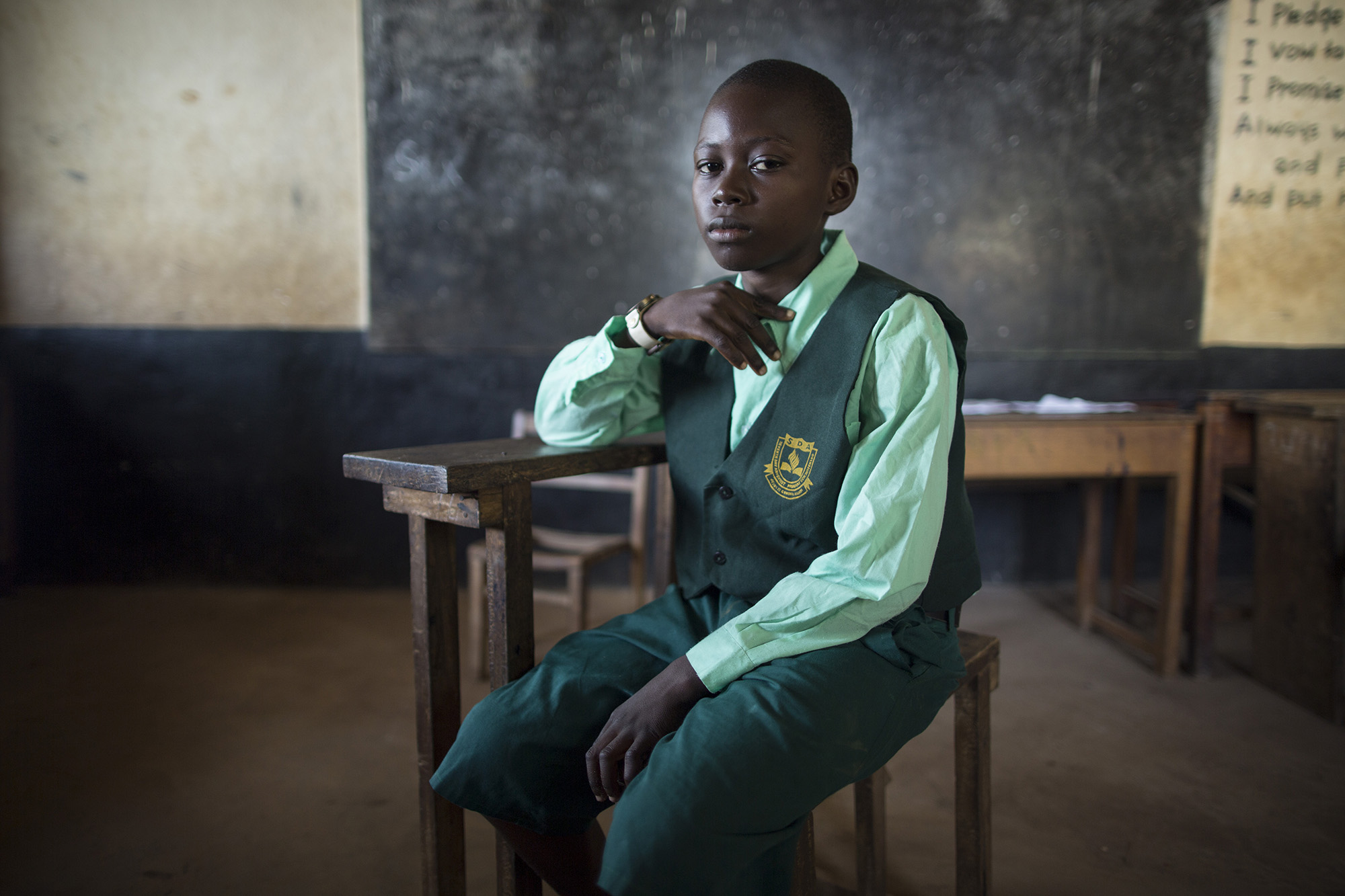
Jan Sankoh, 13, Sierra Leone. “When Ebola came into the country, school was suspended. I was so scared at first I stayed in the house. Not everyone believed in Ebola, but I told them that they should believe it is real. Children have the right to go to school every day. When you learn, you will have everything. I want to be a scientist. I want to study about the stars and the moon. At night, I sometimes see shooting stars outside my house. That’s why I want to be a scientist.”
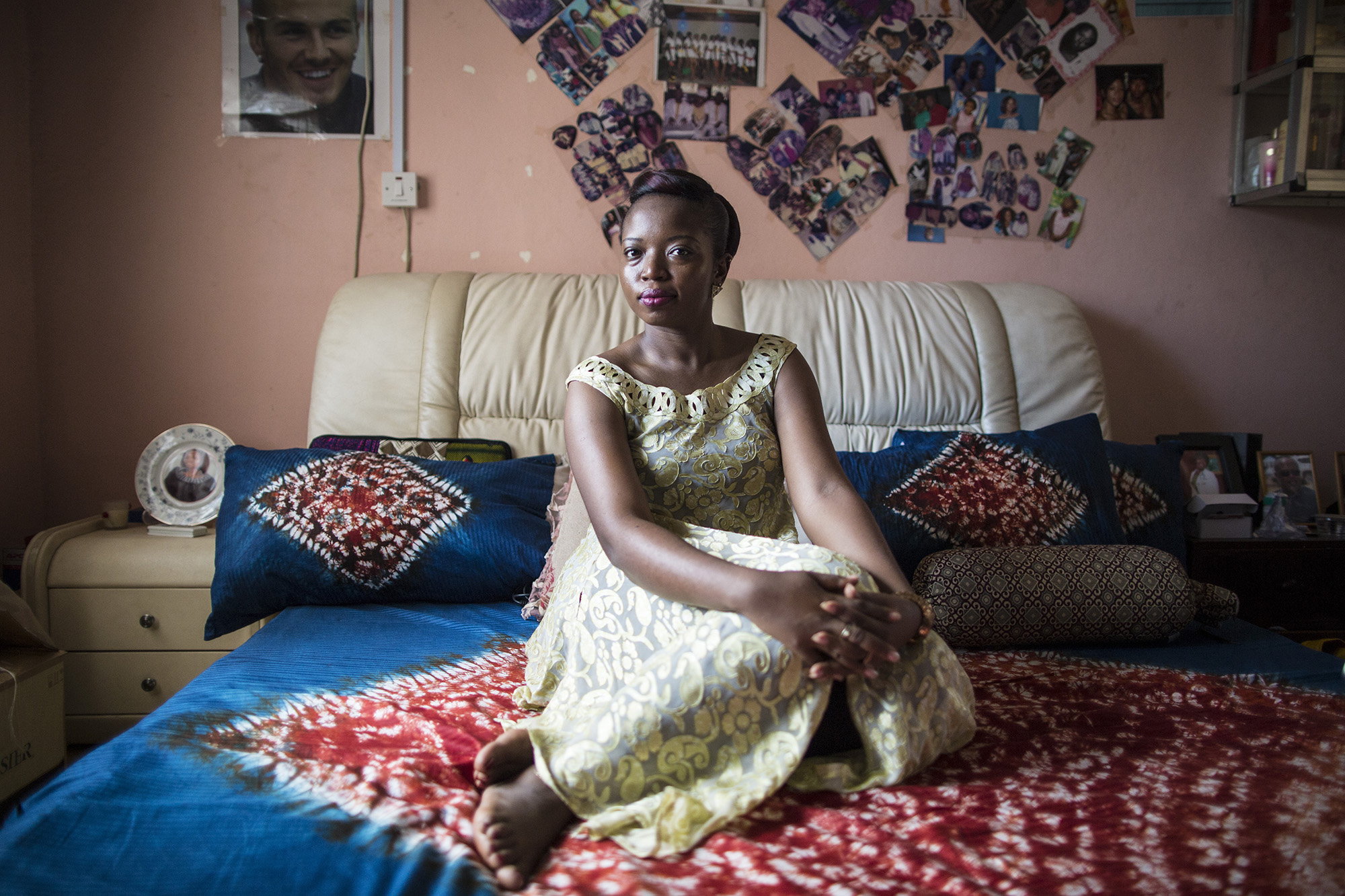
Fanny Mae Koroma, nurse, Sierra Leone. “The rules of Ebola, like not touching, went against our traditions. We had to tell people that running away or keeping secrets in the house was not going to help end Ebola. What helped was having a local person talk to the communities. They trusted me, and they knew I wouldn’t hurt them. There was no trust in the health system before, but now people understand about hygiene practices like washing hands. I hope that stays with people.”
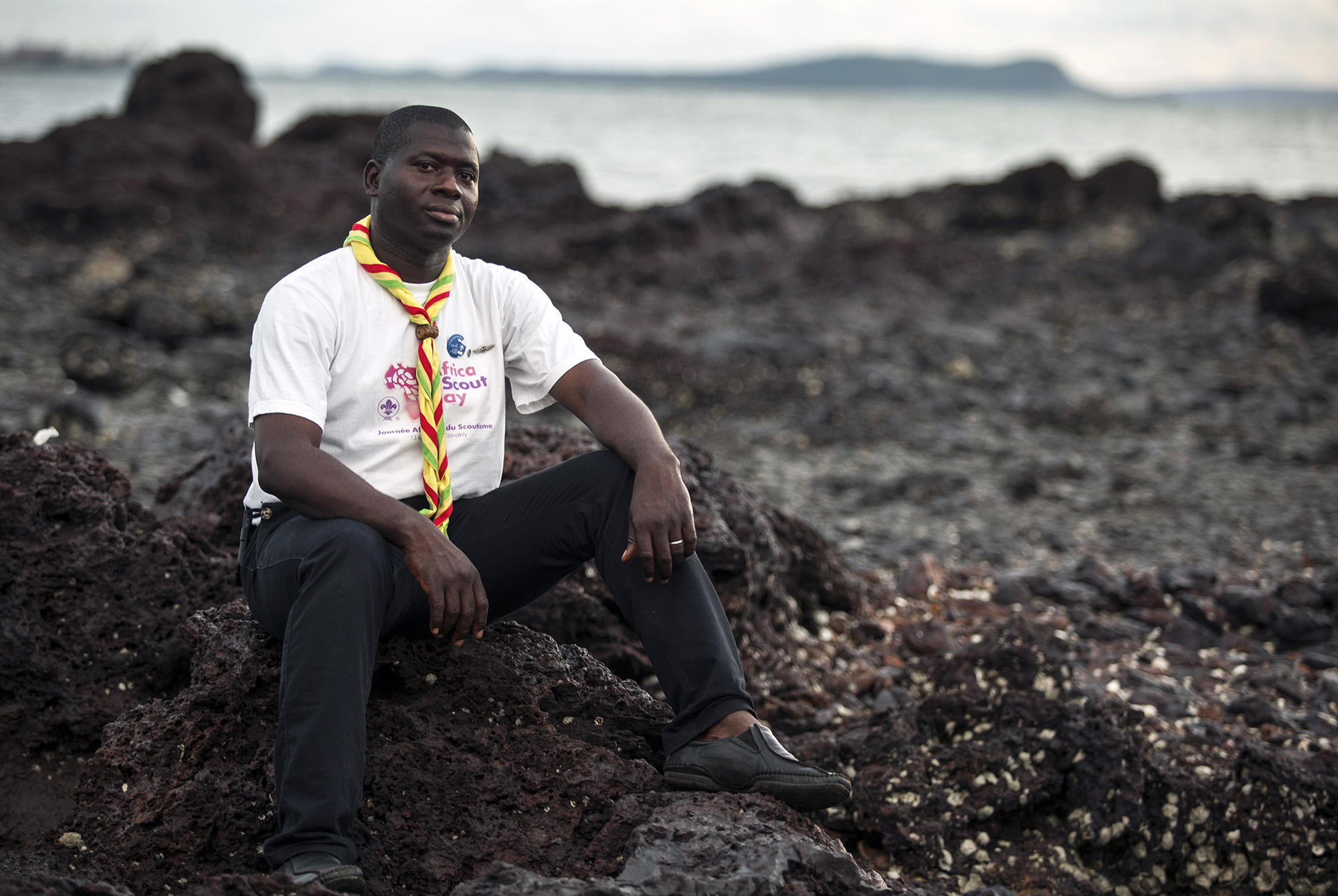
Marlaye Souma, national commissioner of the Boy Scouts, Guinea. “When you become a Scout you make a promise to stay a Scout for life. When Ebola entered the country, Unicef supported the Boy Scouts to distribute hygiene materials in communities. People trusted us and so we were able to help convince them that the disease was real and to teach them to use proper precautions to protect themselves. I’m proud to have contributed to the training of many young boys who are today giving a lot to their community.”
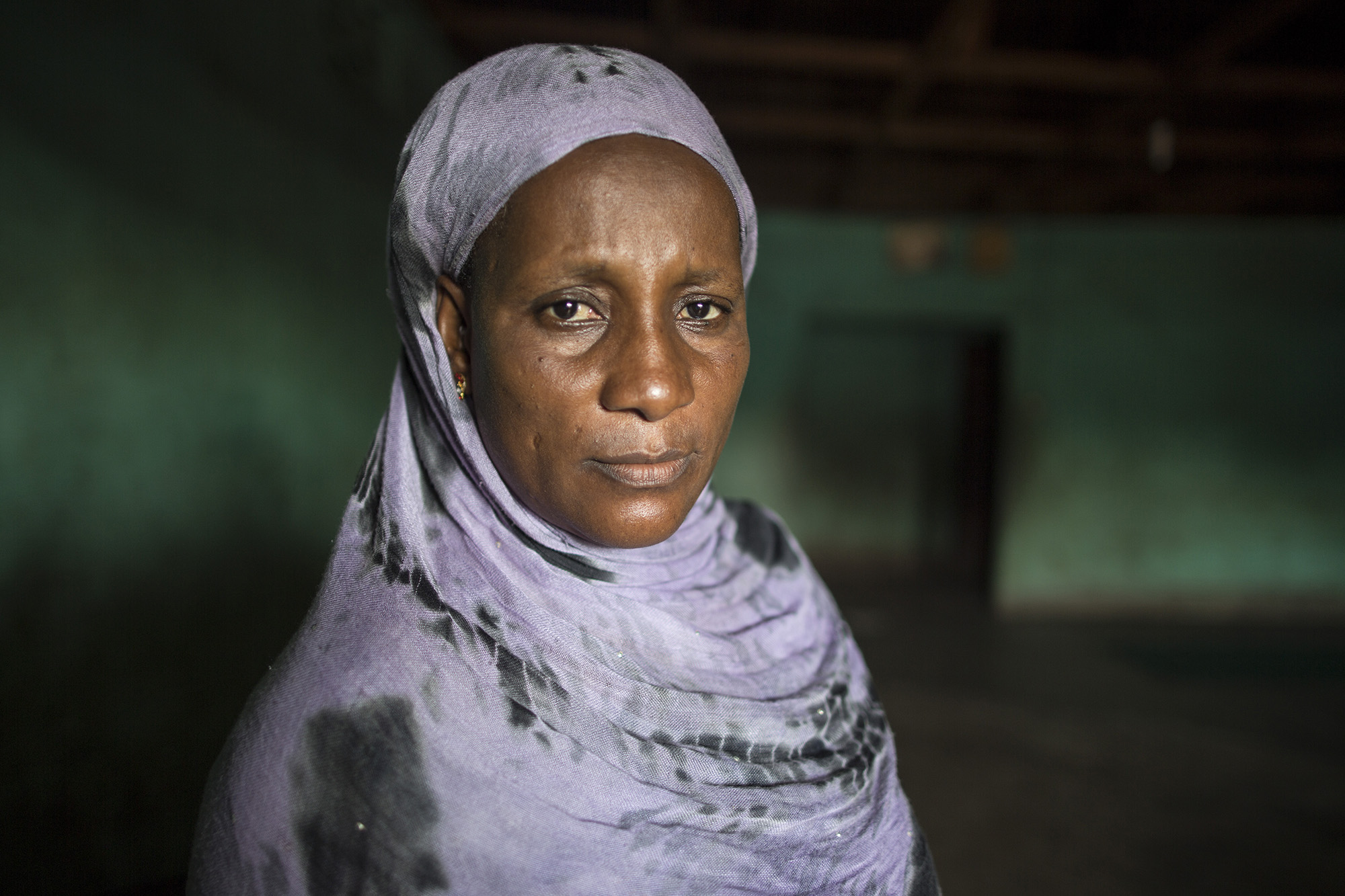
Housseinatou Sangar's step-daughter became ill and her step-son took her to a clinic. The family now believes that the siblings contracted Ebola while at the clinic because another patient was ill. Later, they both passed away from the disease. The family didn’t believe in Ebola at first and were very reluctant to work with organizations such as UNICEF. Her other step-son eventually agreed to wok with UNICEF and help convince the family that Ebola was a real disease. “Since I’m the grandma, I was living with my family taking care of everyone. My husband passed away a while ago.” When her family members started getting sick, she was really scared because she knew what people said about Ebola. Once they were given the vaccine, she had more peace. She told her family to be strong. She said, “Just believe in God."
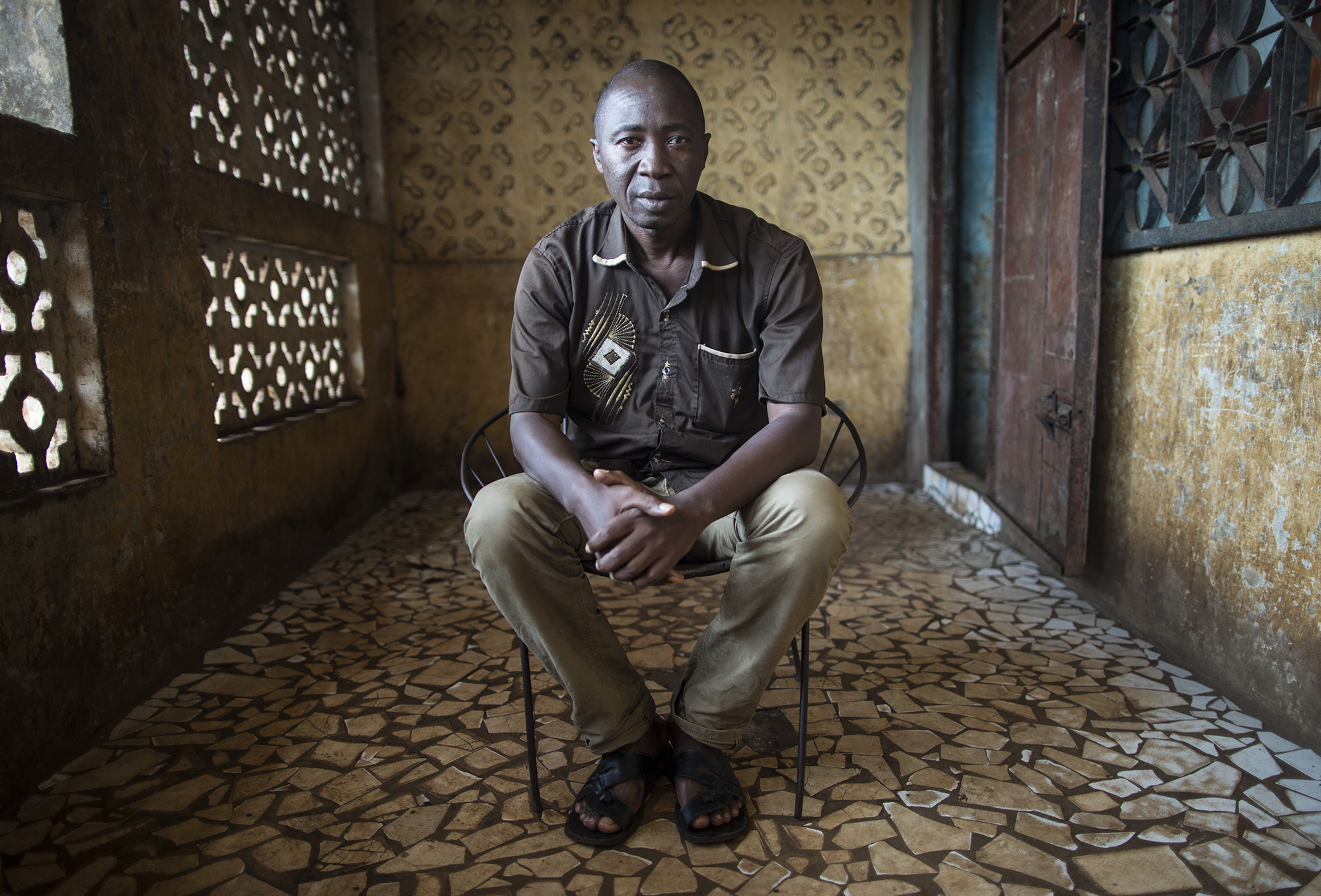
"The first person who was sick was my sister," remembers Ismael Koulibaly. "She was sick but we didn’t know she was sick. We thought it was a pulmonary disease. We took her to a clinic and there was another person who had Ebola while we were there. This is how we think she came down with Ebola." They took her to her parents house. She stayed for five days and then she passed away. They called the Red Cross who confirmed she died of Ebola. The family was scared. The Red Cross, UNICEF and the chief helped to explain the disease to them. Ismael was the first one to accept that his sister had died of this mysterious disease called Ebola. "At first, the family was scared. Again, many of the people didn’t go to school so it was difficult for the family to accept that it was Ebola. Since I am the one who is educated, I had to explain everything to the family for them to accept it. If I didn’t convince my family, many people were going to die and it was going to be a disaster.”
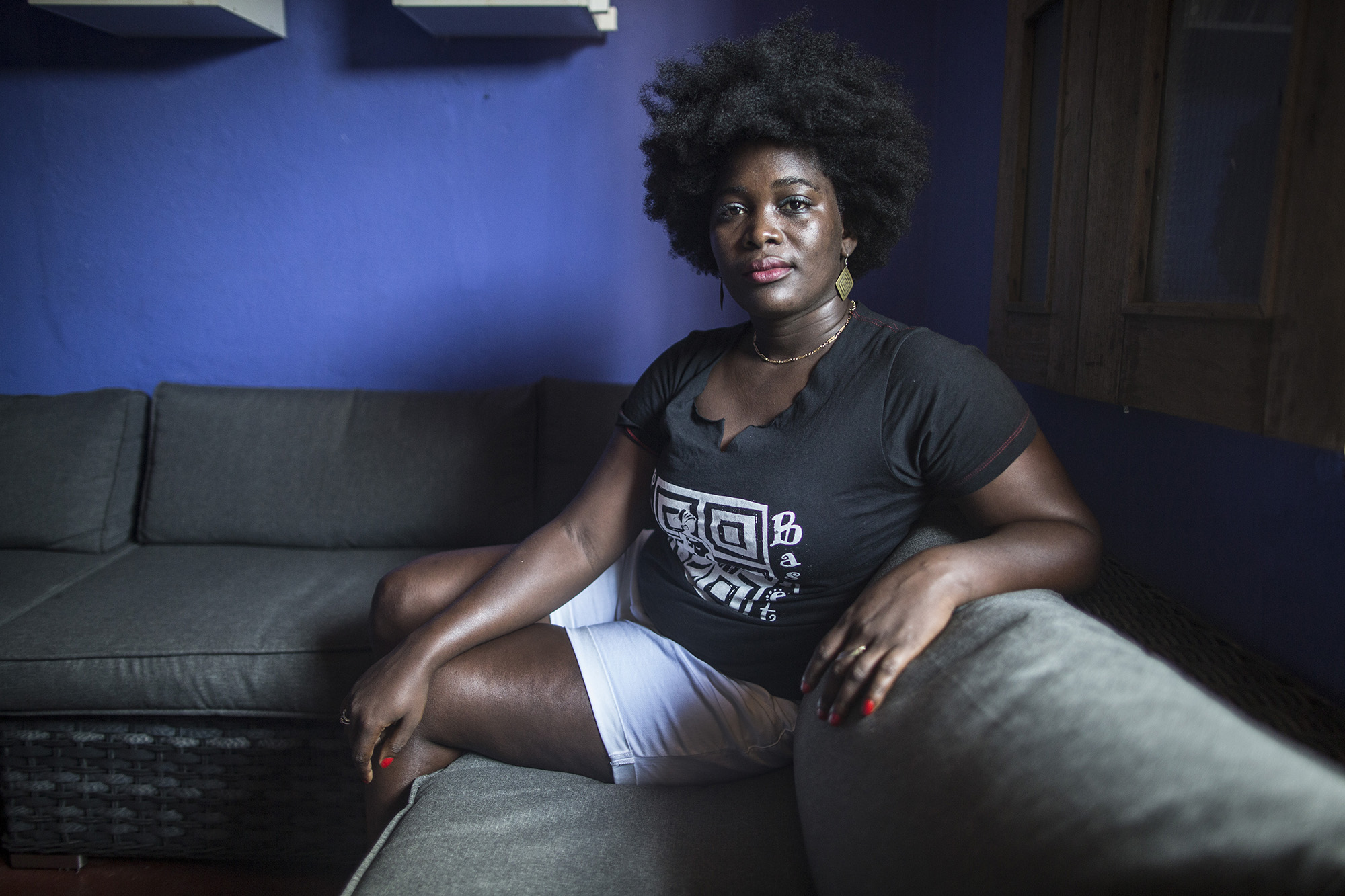
Pandora Hodge, student, Liberia. “We started doing cinema screenings in communities about Ebola, but I thought there was more we could do. We had 72 students involved and with support from the health ministry and Unicef we began going door-to-door. I would always inform the leaders first and then just talk to those who were willing to listen. We reached more than 400 communities. If Liberians start to put Liberia forward first, all the wishes that we have will come true. Development doesn’t come from a country, it comes from the people within the country.”
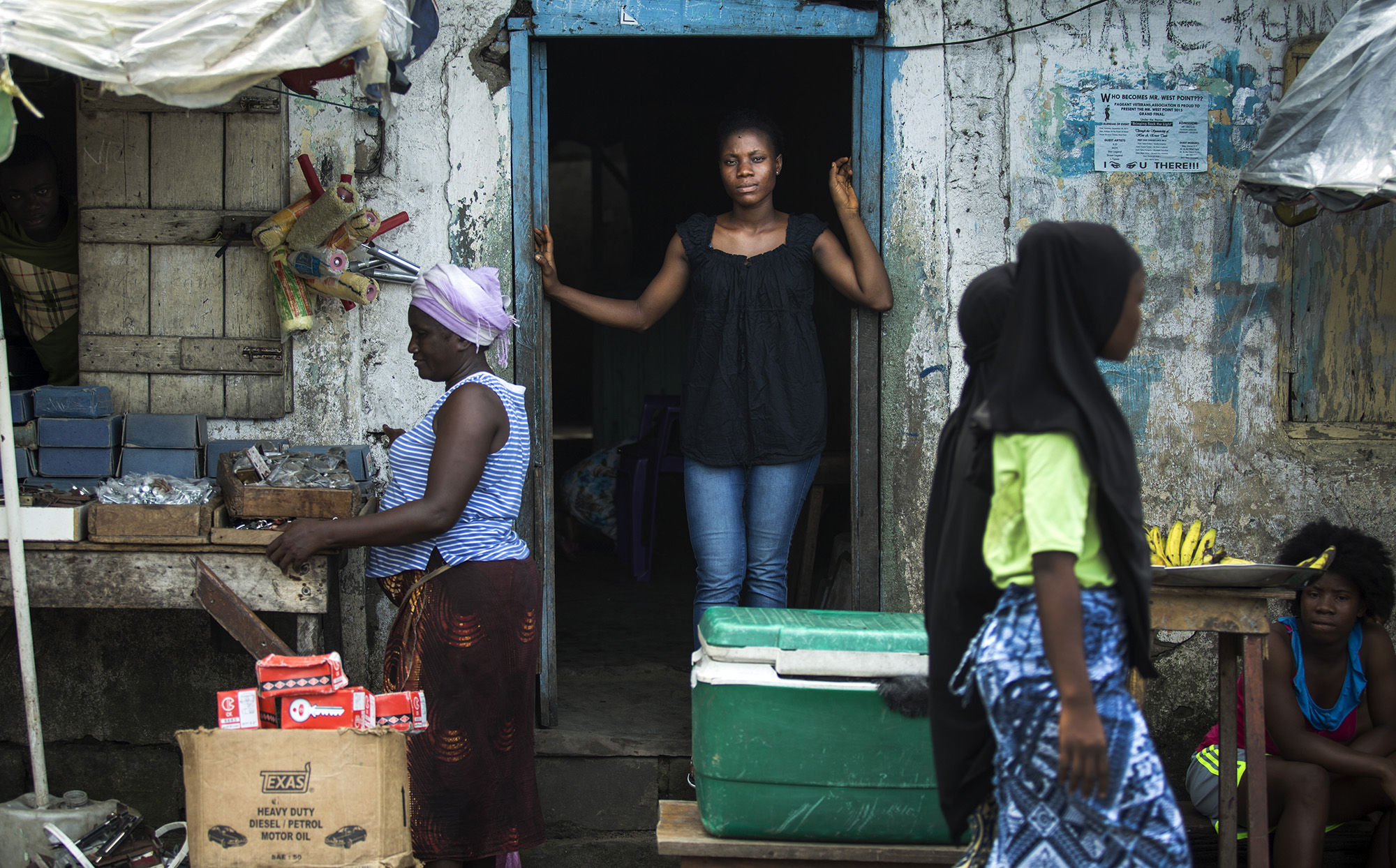
Jessica Meufville, 17, Liberia. “We were trained on Ebola prevention, and we got a lot of information about Ebola that was different from what people here were saying. After the training, we went door to door to tell people how to protect themselves. It was challenging. A lot of people never accepted our message and it used to make me feel bad. Our supervisor used to encourage us and that motivation kept me moving, to talk to more people so more lives could be saved.”
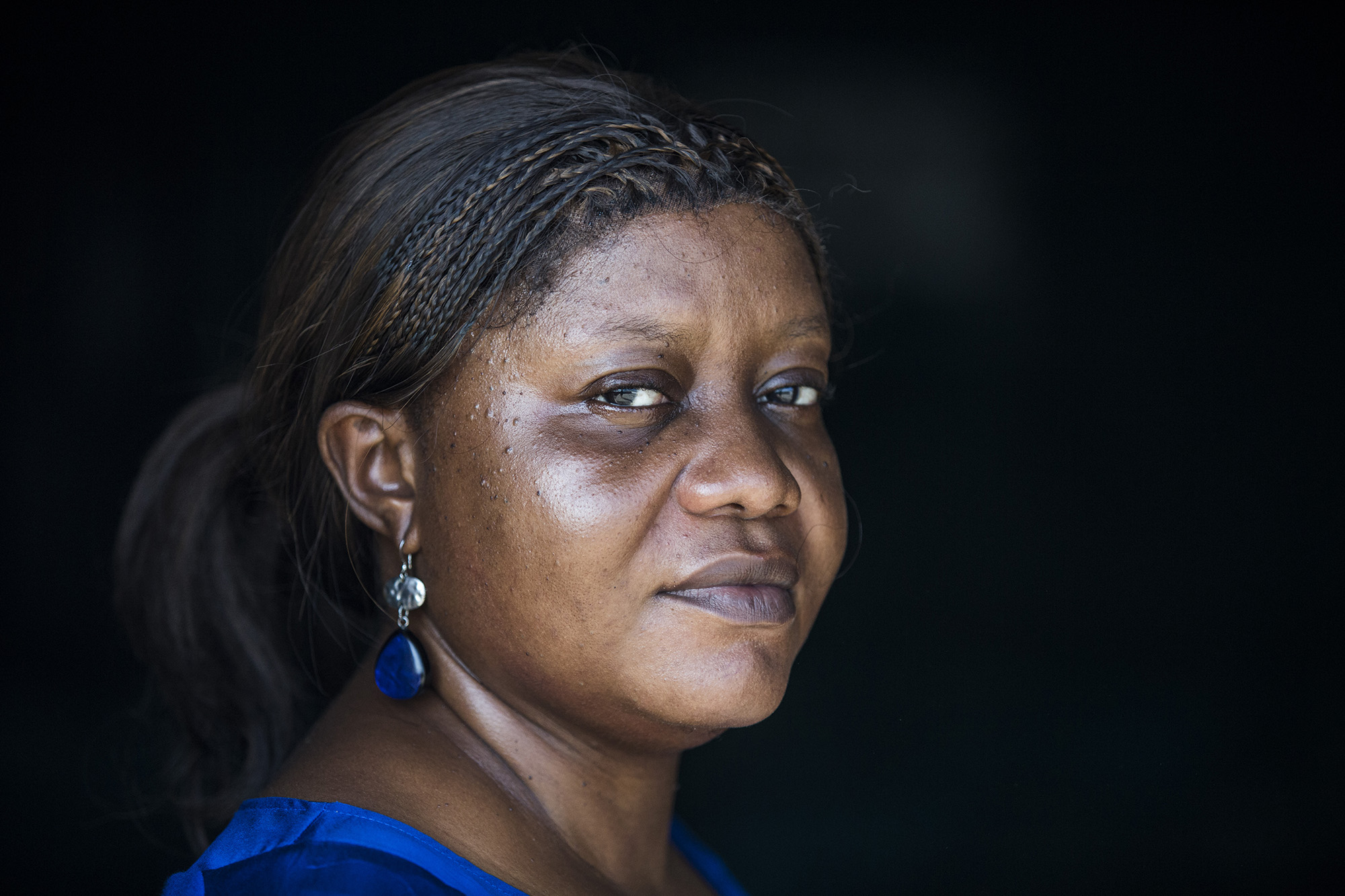
Tarlo Kerkula, Unicef county mobilisation coordinator, Liberia. “I went to the Slipway community to visit a home where there were two sick people and two dead bodies. I was going with volunteers to talk but didn’t know the family. They chased us away by throwing sticks and water at us. I had sleepless nights after that. I tried to involve the community leaders. What I’ve learned is that every community has its own solution. If you work with them you get the desired results.”
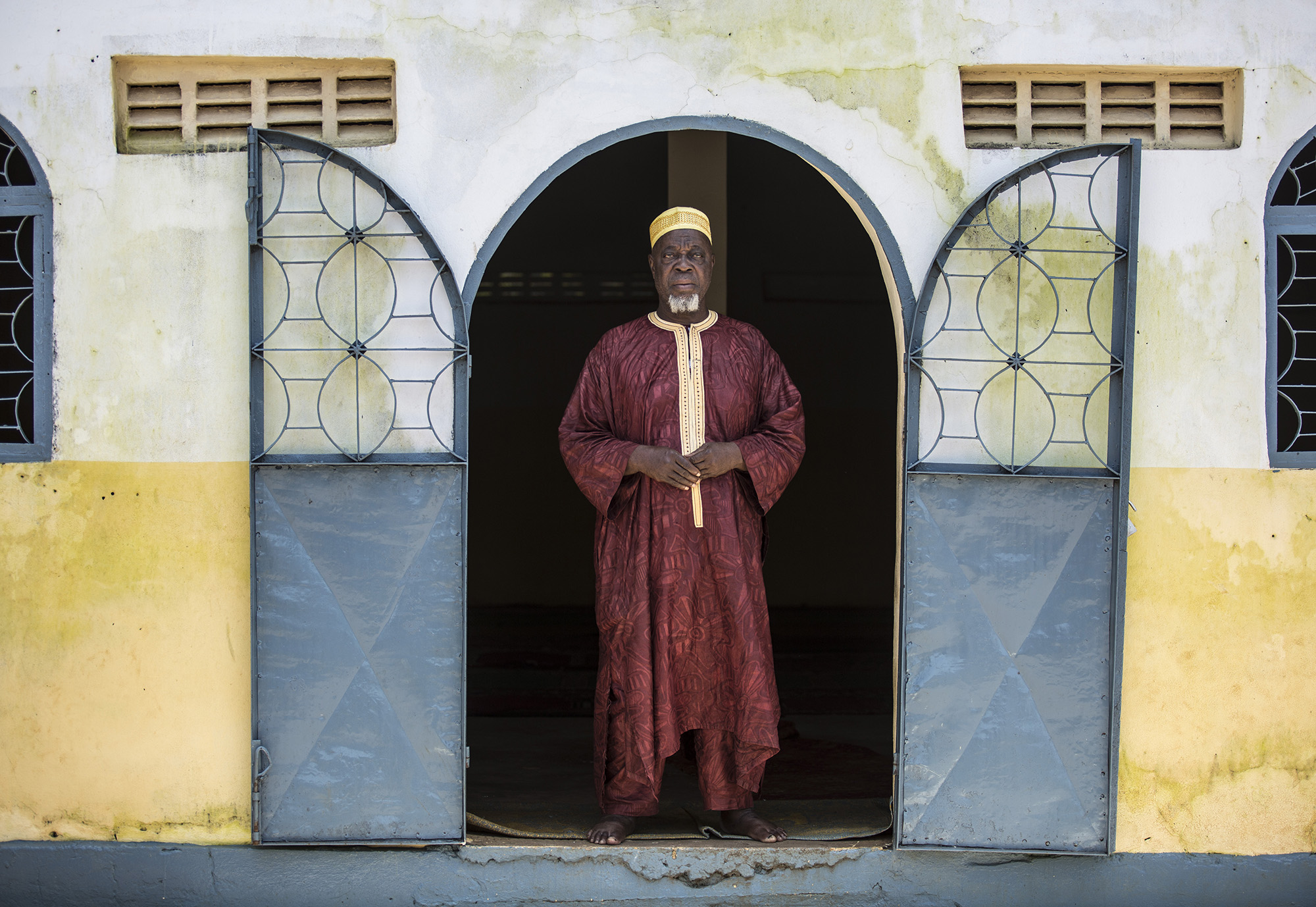
Elhadj Cheikhouna Sylla, Imam, Guinea. “I was taken to a treatment centre to see people who were sick and that strengthened my belief in Ebola’s existence. I knew I had an important role to play in the community and I gave more than 20 speeches in the mosque to convince people about Ebola. When there was a case in the community, I’d talk to the family about taking the person to the treatment centre or having a safe burial if the person had died. Ebola has affected the way we live together, and my hope is that there is more peace in the country.”









